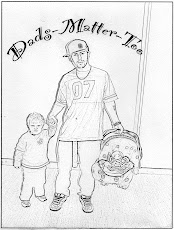Vouchers from Boots. Parent Gym. Something's in the air.
But, to coin a phrase, will this support reach those young people that other support doesn't reach? There's plenty of evidence to suggest not. Sure Start centres have certainly found this to be the case. I worked with one young couple who lived less than one minute's walk from the Children's Centre on their housing estate. Nothing could persuade them to go there. One reason was because, as Jo (not her real name) put it, "I learnt not to trust adults because I didn't trust my parents." Yet her partner completed our young dads-to-be course and she gained a level 1 Award for Money Management and a Level 2 Award for Effective Parenting. And their little son was a delight.
Of course, we were meeting on a 1:1 basis, hardly a corporate model. But what was as important to them as the courses and their achievements was that they learnt that there were some adults who were reliable and could be trusted.
So while any parenting support is to be welcomed, particularly from the very earliest stages of pregnancy, it remains to be seen whether those young people the government really needs to help will respond to texts and emails, let alone turn up to "classes". Sounds a bit like school. Many of them have had less than positive experiences there, usually a consequence of their childhood experiences.
Most young people want to be 'good enough' parents. All the young men with whom I worked wanted to be better fathers than their own fathers had been to them. But too often there's talk about the need to support 'single mothers'. Yet for every one of them there's a 'single father' somewhere. Yet the word 'father' often never gets mentioned. And you don't hear about the importance of working with 'single fathers' before they become single. There's enough evidence, not that it should be needed, about the contribution fathers make to the healthy social and emotional development of their children. And there are enough concerns about the outcomes for 'fatherless' families. One can only hope that "parenting classes" will address these issues.
My evidence is that young men will respond to work that is aimed specifically at them. My concern is that they will feel that "parenting classes" are only really aimed at the mothers of their children, as are so many other services. To quote a wise old sage, "I could be wrong." Let's hope so.




